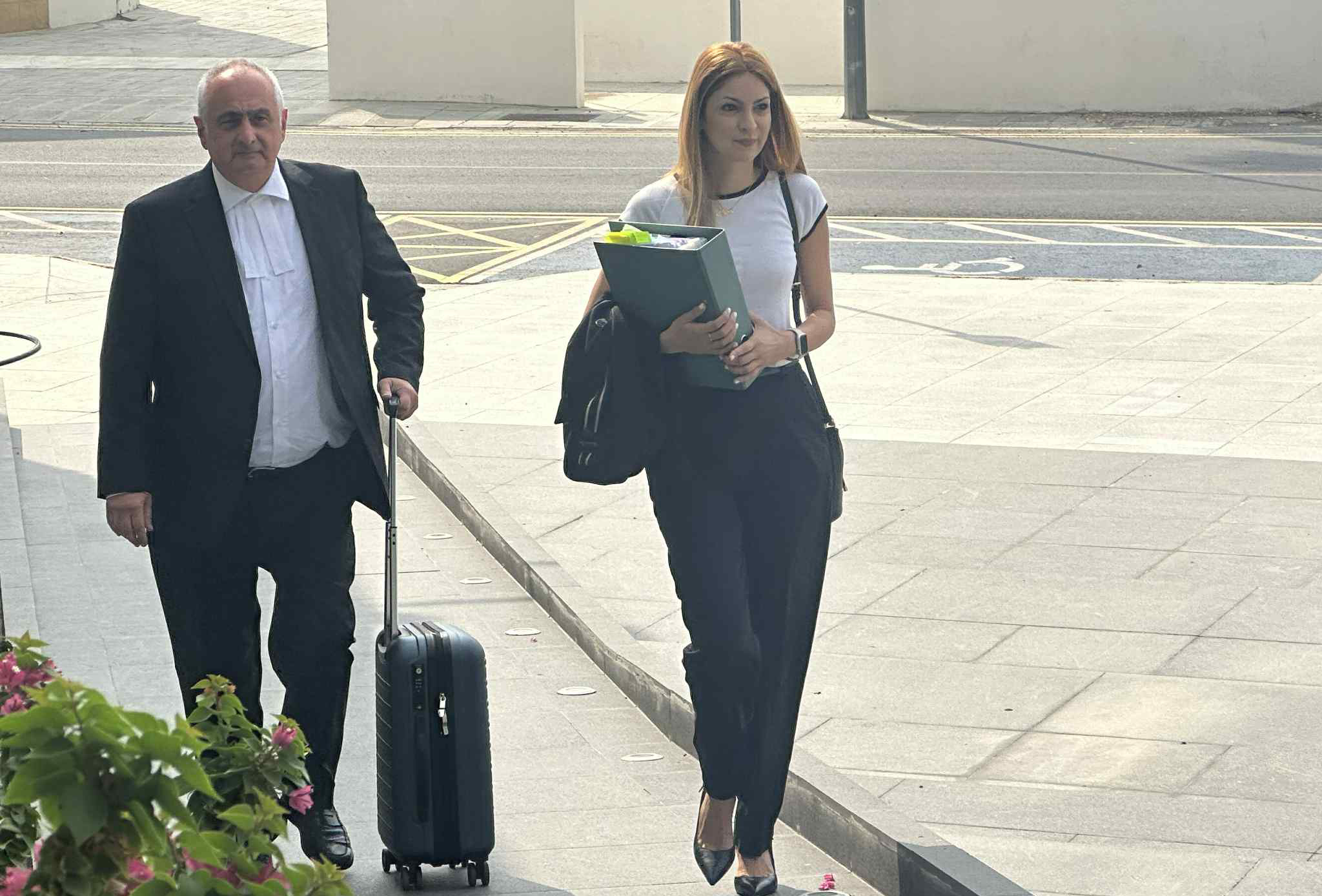The supreme constitutional court on Wednesday began hearing an appeal by Doria Varoshiotou against the decision of the supreme judicial council that relieved her of her duties as a judge.
Varoshiotou’s lawyer Achilleas Demetriades said that they were also calling for an order to suspend that decision until her appeal was heard, which the court on Wednesday said it would examine before the main appeal.
The appellant requested the urgent examination of the application, dated July 9, for a statement or decree confirming the statutory suspension of the decision.
“The issue is urgent, not just for the appellant, but also for justice, given that there is a clear non-compliance with the law by individuals who should have known the law,” Demetriades said.
He added that his client was requesting the “restoration of legal order” as the law requires the suspension of the decision.
Lawyer Polys Polyviou, who is representing the supreme judicial council, will be objecting.
This should be done by noon on July 21. President of the supreme constitutional court Antonis Liatsos said oral arguments will be presented on July 23. The two sides will now have to present their arguments in writing within a fortnight.
The court on Wednesday set August 25 for the hearing of the main appeal.
Preparing the defence case, Demetriades requested the minutes of three previous sessions from the judicial council relevant to Varoshiotou’s case, and it was agreed that all documents be uploaded to the website of the supreme constitutional court for transparency purposes.
Varoshiotou’s objection was filed on July 8, a day before the application for a statement or decree.
The supreme judicial council decided in early July to not offer Varoshiotou a permanent position within the judiciary following the conclusion of a two-year probationary period.
She was the only one of 11 judges under probation whose position was discontinued, with seven being offered permanent appointments and three being given further probation.
Varoshiotou last year ruled that conscript Thanasis Nicolaou, who died in 2005, had been strangled to death,19 years after his death had been ruled a suicide and following a long campaign to have that ruling overturned by his mother Andriana Nicolaou.
That ruling prompted a wave of appeals from former state pathologist Panicos Stavrianos.
While those appeals were unsuccessful, the Supreme Court found in February that Varoshiotou had made a “legal error” in not allowing Stavrianos to testify during the case.
Despite this, the Supreme Court also found that it would “not serve any purpose” to annul Varoshiotou’s decision “for reasons of public interest and justice”.
President Nikos Christodoulides demanded “public explanations” over the reasons for Varoshiotou’s dismissal.
“I fully understand the social reaction and the feeling created in society. It is extremely important that those who took this decision, and it was not the executive power, explain publicly why they took it. I repeat, I understand the reactions from society,” Christodoulides said.
Meanwhile, Andriana Nicolaou described the decision to relieve Varoshiotou of her duties as “unacceptable” describing her as “a worthy and incorruptible judge”.






Click here to change your cookie preferences